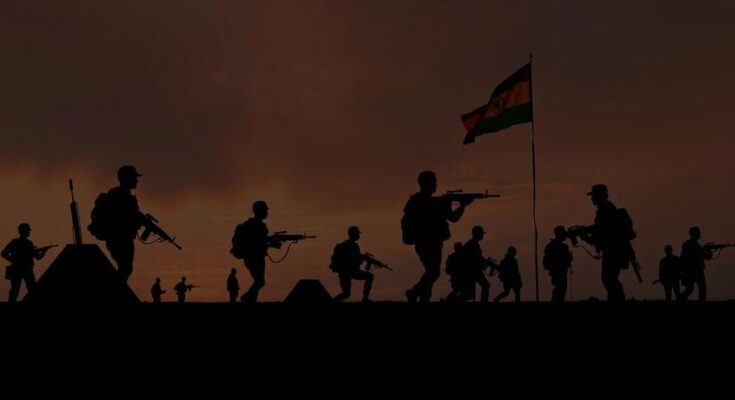The conflict between Egypt and Ethiopia over the Nile has evolved into an arms race in Somalia, raising sovereignty issues and threatening regional cooperation against terrorism. Somalia’s alignment with Egypt clashes with Ethiopia’s military activities, leading to heightened tensions. The issue is compounded by Ethiopia’s arms shipments to Puntland, prompting Somalia to seek alternative military support from Egypt. The situation illustrates the complexities of regional security and territorial claims within the Horn of Africa.
The longstanding rivalry between Egypt and Ethiopia over the Nile has escalated into an arms race taking place in Somalia, which threatens regional cooperation against terrorism. Somalia asserts its sovereign rights over the delivery of arms and the presence of foreign troops to bolster its nascent security forces. However, Ethiopia perceives this as a significant threat, given Somalia’s growing relationship with Egypt, historically an adversary of Ethiopia. Tensions have risen sharply since Egypt initiated arms supplies to Somalia, including recent shipments through the Port of Mogadishu. Reports indicate that Egypt is enhancing its naval presence in the Red Sea to support these operations, purportedly aimed at strengthening Somali military capabilities. In contrast, Ethiopia, which currently has troops in Somalia under both the African Union, and a bilateral agreement, alleges that these arms transfers could destabilize the region and potentially empower terrorist groups like al-Shabaab. Ethiopian officials have voiced concerns, with Foreign Affairs Minister Taye Atske Selassie suggesting that unidentified external influences, likely referring to Egypt, could exacerbate instability and benefit al-Shabaab. Conversely, Somali Foreign Affairs Minister Ahmed Moalim Fiqi has condemned Ethiopia’s arms shipments to Puntland, labeling them as infringements on Somali sovereignty and condemning prior incidents of unauthorized arms deliveries. This conflict is rooted in broader geopolitical tensions, particularly following the signing of a Memorandum of Understanding between Ethiopian Prime Minister Abiy Ahmed and Somaliland officials, which Somalia views as an affront to its territorial integrity. Consequently, Somalia has sought to alter its military assistance framework, preferring Egyptian involvement over Ethiopian troops in upcoming stabilization efforts. The tension has been aggravated by Puntland’s recent assertions of autonomy from the Somali central government, highlighting deeper political issues that could impede stability in the region. In summary, while Ethiopia claims to have been a steadfast ally in combatting terrorism, Somalia’s leadership has emphasized that full diplomatic normalization hinges on Ethiopia’s actions regarding its agreements with Somaliland. The arms race in Somalia thus represents not merely a local concern but a flashpoint in the intertwined political and military dynamics of the Horn of Africa.
The article discusses the escalating tensions between Egypt and Ethiopia focused around their conflict concerning the Nile River, which is now unfolding in Somalia through an arms race. Somalia’s sovereignty and its imperative to manage arms supply and foreign troop presence are central to this conflict, particularly as Somalia strengthens its ties with Egypt, which Ethiopia considers a historical rival. The increasing militarization and territorial disputes raise concerns over regional security and cooperation against extremist groups, such as al-Shabaab. Ethiopia’s military involvement in Somalia amid accusations regarding unauthorized arms shipments adds layers to the already complex geopolitical landscape in the Horn of Africa.
In conclusion, the arms race between Egypt and Ethiopia within the context of Somalia reflects deep-rooted historical grievances and contemporary geopolitical struggles impacting regional stability. Somalia’s sovereignty is at stake as it navigates foreign military support while contending with Ethiopia’s military presence and influence. Furthermore, the unfolding events underscore the critical interplay between local governance in regions like Puntland and broader international relations, with the potential to reshape alliances and security frameworks in the Horn of Africa.
Original Source: nation.africa




